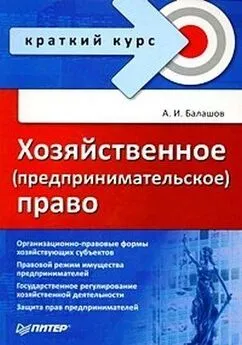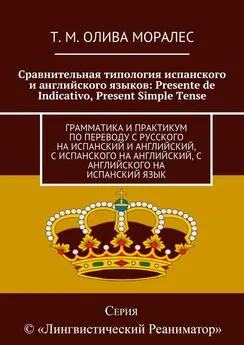Станислав Коростелев - Английский язык для юристов. Предпринимательское право
- Название:Английский язык для юристов. Предпринимательское право
- Автор:
- Жанр:
- Издательство:046ebc0b-b024-102a-94d5-07de47c81719
- Год:2006
- Город:СПб
- ISBN:5-469-01382-0
- Рейтинг:
- Избранное:Добавить в избранное
-
Отзывы:
-
Ваша оценка:
Станислав Коростелев - Английский язык для юристов. Предпринимательское право краткое содержание
Настоящее учебное пособие предназначено для овладения лексикой в области предпринимательского и коммерческого права студентами лингвистических вузов и студентами гражданско-правовой специализации юридических вузов.
Книга призвана дать преподавателям и студентам специальный языковой и профессиональный материал, ориентированный на повышение качества профессиональной подготовки в области правовой лингвистики и международного бизнеса.
Английский язык для юристов. Предпринимательское право - читать онлайн бесплатно ознакомительный отрывок
Интервал:
Закладка:
Exercise 6. Resume in industry buzz:
Types of Ks
1. Express or Implied a. Express is statemts of mutual assent; willingness to enter into a K
b. Implied is no statements; conduct
2. Bilateral, Unilateral or Code a. Code is sale of goods & no bi/uni distinction b. Bilateral formed w/mutual promises of parties, perf. of both fully executory c. Unilateral promise 1 side & fully executed perf. the other (K no formed until fully executed 1 side)
3. Telling if Bilateral or Unilateral a. Unilateral if offer warns only accept by act or if public offer b. Bilateral always if asks for return promise c. Offer indifferent (can't tell if promise or perf. requested) MAJ it's bilateral
Unit 3
Offer and Acceptance
Оферта и акцепт
Офертой (глава 28 ГК РФ) признается такое предложение, которое: а) должно быть достаточно определенным и выражать явное намерение лица заключить договор; б) должно содержать все существенные условия договора; в) должно быть обращено к одному или нескольким конкретным лицам. Акцептом признается согласие лица, которому адресована оферта, принять это предложение, причем не любое согласие, а лишь такое, которое является полным и безоговорочным. Акцептом считается также совершение лицом, получившим оферту, в срок, установленный для акцепта, действий по выполнению указанных в ней условий договора. Будучи полученными, оферта и акцепт порождают юридические последствия для совершивших их лиц.
– acceptance – акцепт, акцептование
– cost-plus contract – договор на условиях оплаты фактических расходов с начислением определенного процента от этих расходов
– counteroffer – встречное предложение; контроферта
– current market price contract – договор на условиях оплаты по текущим рыночным ценам
– firm offer – предложение товара или ценных бумаг по твердой цене; твердое предложение
– invitation to trade – приглашение сделать оферту
– mirror image rule – правило зеркального отображения
– offer – предложение; оферта
– offeree – адресат оферты; лицо, которому делается предложение
– offerer – оферент; лицо, делающее предложение
– option contract – опционный контракт
– output contract – договор о продаже всей произведенной продукции
– public offer – оферта, обращенная к неопределенному кругу лиц
– rejection – отклонение, отказ
– requirements contract – контракт «на все потребности покупателя» (предусматривающий закупку покупателем только у одного поставщика)
– revocation – отмена, аннулирование; ревокация
The first element of a valid contract is the existence of an offer. An offer is a proposal made by one party to another indicating a willingness to enter into a contract. The person who makes an offer is called an offeror. The person to whom the offer is made is called the offeree. An offer is valid only if it has serious intent, has clear and reasonably definite terms, and has been communicated to the offeree.
An offer is invalid if it is made as an obvious joke, during an emotional outburst of rage or anger, or under circumstances that might convey a lack of serious intent. The offerer's words or actions must give the offeree assurance that a binding agreement is intended. Serious intent is determined by the offerer's words and actions and by what the offeree believed was intended by those words and actions.
The offerer's words must give the offeree assurance that a binding agreement is intended.
The terms of an offer must be sufficiently clear to remove any doubt about the contractual intentions of the offerer.
The communicated terms of an offer must be sufficiently clear to remove any doubt about the contractual intentions of the offerer. No valid offer will exist when terms are indefinite, inadequate, vague, or confusing.
In general, an offer should include points similar to those covered in a newspaper story – who, what, when, where, and how [much] – if it is to be clear, definite, and certain. In other words, the offer should identify the parties involved in the contract, the goods or services that will be the subject matter of the contract, the price the offerer is willing to pay or receive, and the time required for the performance of the contract.
Sometimes laws permit offers to omit certain information. They can state that even though one or more terms are left open a contract for sale does not fail for indefiniteness if the parties have intended to make a contract and there is a reasonably certain basis for giving an appropriate remedy. For example, cost-plus contracts, output contracts, requirements contracts, and current market price contracts are enforceable even though they are not complete in certain matters. A cost-plus contract does not include a final price. Instead, that price is determined by the cost of labor and materials plus an agreed percentage markup. An output contract is an agreement in which one party consents to sell to the second party all the goods that party makes in a given period of time. A requirements contract is an agreement in which one party agrees to buy all of the goods it needs from the second party. Finally, a current market price contract is an agreement in which prices are determined with reference to the market price of the goods on a specified date.
An offer must be communicated to the offeree to be valid. The communication of the offerer's intentions may be by whatever means is convenient and desirable. It may be communicated orally or by letter, telegram, or any other means capable of transmitting the offerer's proposal. It may also be implied. Acts and conduct of the proposing party are, in many cases, successful in communicating an intention to make an offer to another party witnessing them. When acts and conduct are sufficient to convey an offerer's intentions, an implied offer results.
At times, an offer must be communicated to a party whose name, identity, or address is unknown. In such cases, a public offer is made. A public offer is made through the public media but is intended for only one person whose identity or address is unknown to the offerer. The classic example of a public offer is an advertisement in a lost-and-found column in a newspaper.
By contrast, invitations to trade are not offers. An invitation to trade is an announcement published for the purpose of creating interest and attracting a response by many people. Newspaper and magazine advertisements, radio and television commercials, store window displays, price tags on merchandise, and prices in catalogs are included within this definition. In the case of an invitation to trade, no binding agreement develops until a responding party makes an offer that the advertiser accepts.
The second major element in a binding contract is acceptance of the offer. An a cceptance means that the offeree agrees to be bound by the terms set up by the offerer in the offer. Only the offeree, the one to whom the offer is made, has the right to accept an offer. If another party attempts to accept, that attempt would actually be a new and independent offer.
Unilateral contracts do not usually require oral or written communication of an acceptance. When the offerer makes a promise in a unilateral contract, the offerer expects an action, not another promise in return. Performance of the action requested within the time allowed by the offerer and with the offerer's knowledge creates the contract.
In bilateral contracts, unlike unilateral ones, the offeree must communicate acceptance to the offerer. Bilateral contracts consist of a promise by one party in return for a promise by the other. Until the offeree communicates a willingness to be bound by a promise, there is no valid acceptance.
An offer may be accepted by either express or implied means of communication. In an express acceptance, the offeree may choose any method of acceptance, unless the offer states that it must be made in a particular manner. A stipulation such as «reply by Federal Express» or «reply by certified mail» in the offer must be carried out to complete an acceptance.
To be effective, an acceptance must be unequivocal, which means that the acceptance must not change any of the terms stated in the offer. Under common law, this stipulation is known as the mirror image rule.
Under the mirror image rule, the terms stated in the acceptance must duplicate the terms in the offer. If the acceptance changes or qualifies the terms in the offer, it is not an acceptance but a counteroffer. A counteroffer is a response to an offer in which the terms of the original offer are changed. No agreement is reached unless the counteroffer is accepted by the original offerer.
In contracts for the sale of goods, as long as there is a definite expression of acceptance, a contract will result even though an acceptance has different or additional terms. If both parties are not merchants, the different or additional terms are treated as proposals for amendment to the contract. If the parties are both merchants, however, the different or additional terms become part of the contract unless (a) they make an important difference, (b) the offerer objects, or (c) the offerer limits acceptance to its terms.
Acceptance may result from the conduct of the offeree. Actions and gestures may indicate the offeree's willingness to enter into a binding agreement.
As a general rule, silence is not an acceptance. If, however, both parties agree that silence on the part of the offeree will signal acceptance, then such an acceptance is valid.
Another exception to the general rule occurs when the offeree has allowed silence to act as acceptance. The offerer cannot force the offeree into a contract by saying silence will mean acceptance. The offeree, however, can force the offerer into a contract if the offerer established the silence condition.
A rejection comes about when an offeree expresses or implies refusal to accept an offer. Rejection terminates an offer and all negotiations associated with it. Further negotiations could commence with a new offer by either party or a renewal of the original offer by the offerer. Rejection is usually achieved when communicated by the offeree.
A revocation is the calling back of the offer by the offerer. With the exception of an option contract and a firm offer, an offer may be revoked anytime before it has been accepted. The offerer has this right, despite what might appear to be a emphasis moral obligation to continue the offer. An offer may be revoked by communication, automatic revocation, passage of time, death or insanity of the offerer, destruction of the subject matter, or the subsequent illegality of the contract.
Читать дальшеИнтервал:
Закладка:










